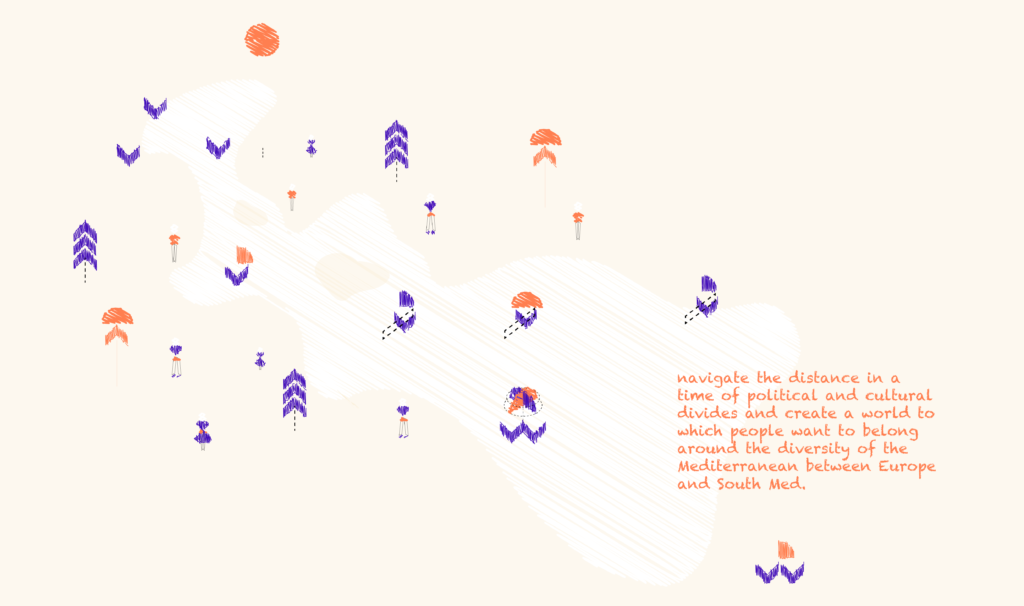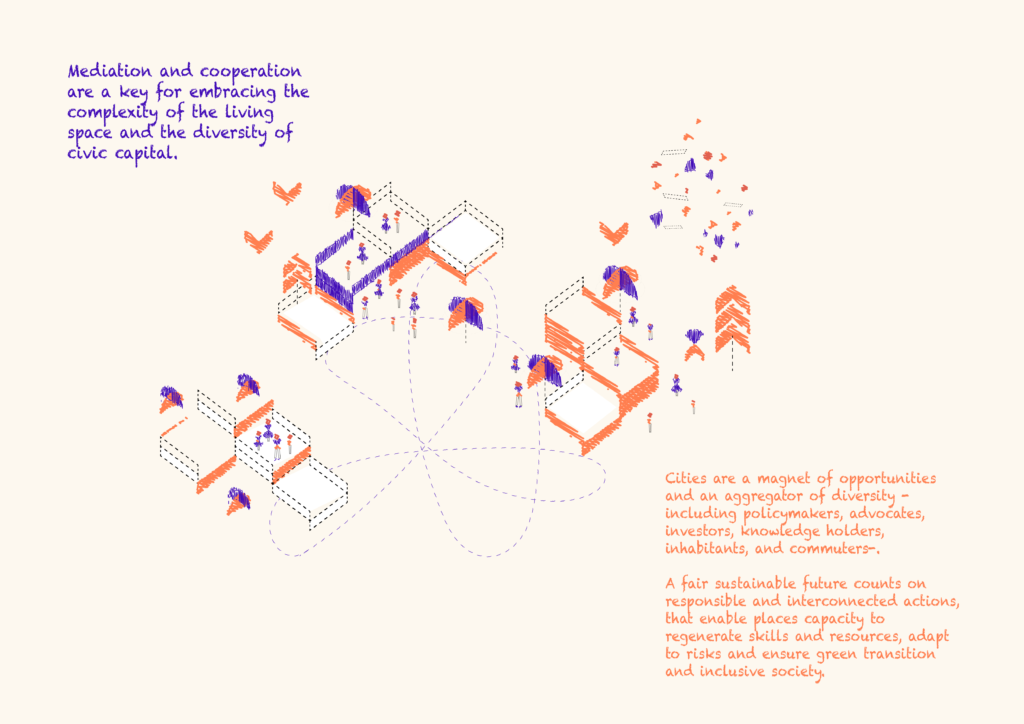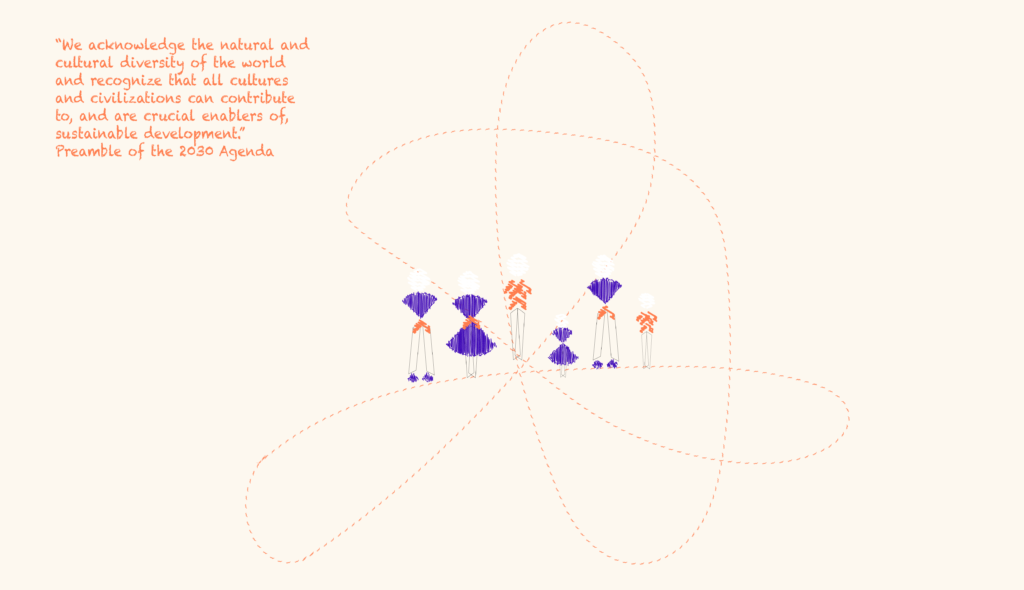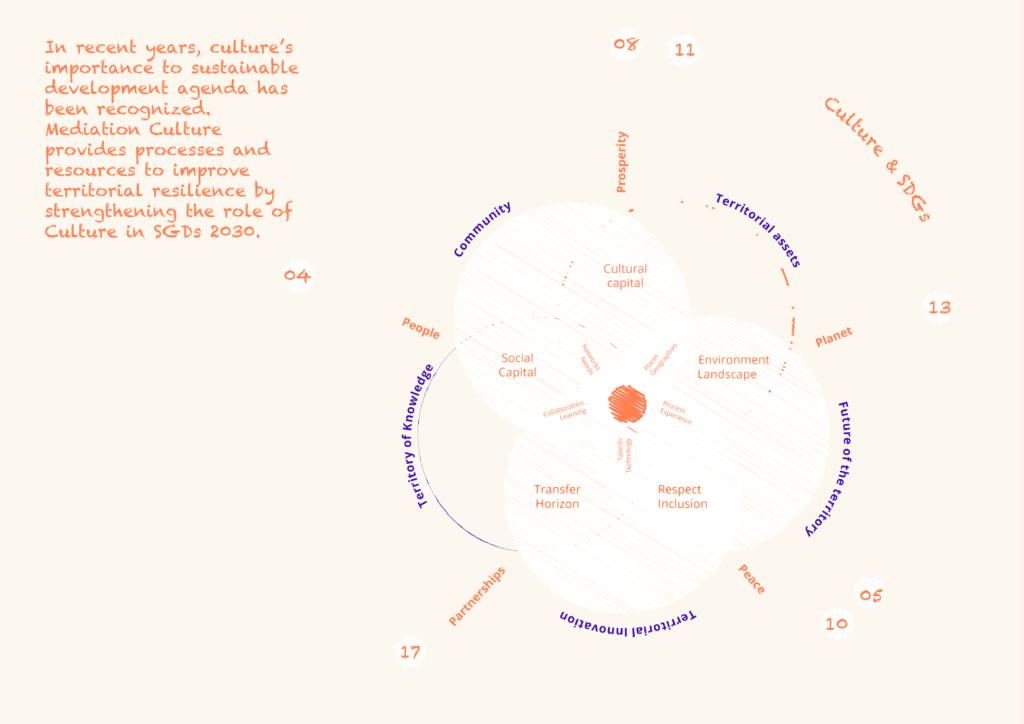« There are ten, twenty, or a hundred Mediterraneans, each one subdivided in turn. To spend even a moment alongside real fishermen, yesterday or today, is to realize that everything can change from one locality to another, one seabed to another, from sandbank to rocky reef. But the same is equally true on land. Yes, we can always tell that we are somewhere near the Mediterranean: the climate of Cádiz is quite like that of Beirut, the Provençal riviera looks not unlike the south coast of the Crimea, the vegetation on the Mount of Olives near Jerusalem could equally well be in Sicily.»
… Fernand Braudel. « Memory and the Mediterranean. »

?
If wise sailors would rarely get out of their familiar sea, the future for addressing global challenges of climate change, and social equality expects us to overcome the one «Mediterranean»… This one sea of multiple seas of which we know the detours and the swings of the wind. The decline of our living conditions is due to the collapse of the circulation system. Well before, the flow connected the shores, for centuries. It allowed the exchange of goods, knowledge, and people. Today, our reality doesn’t look the same. The space of movement divides into limited places and horizons with the rise of fear from diversity.
Mediation Culture navigates these fluid distances. We want to make the best from what we can get… from the flow of energies between the cultural geographies of EU-MED. Because we need to help sustainability and equality prosper in contexts we care for. Because, here, we act with greater intentionality and commitment to change the processes… As well as the agendas that enable people, independently from their specific belonging, to play out their resources. This way, we can shape the future that matters.
0

The barriers to sustainable change are made by the inability to heal the root causes of a problem. While localizing SDGs, a good understanding of needs and dysfunctions on the ground is equally important as the respect of the cultural traits of a context. By 2030-2050, our living environments will be highly challenged. We need knowledge, local mediators, and policymakers to act collectively. Cross-sectoral approaches help to welcome complexity, scale existing efforts, and build a common path for well-being.

Citizens and communities are the resource holders, the users of the environment, and the influencers of social conduct. They are agents in shaping the quality of living spaces. Without them, sustainable development objectives can’t be made real in both urban and rural settings.
04... Why Culture 2030?
Culture affects the mindsets and the habits of inclusion, collaboration, and responsible ways of life. It preserves the memory of the future and the action for a sustainable world. Culture, also, shapes belongings, the sense of care, and our concrete practice of SDGs.

05... Why Capital?
Economy and funding are at the start of bringing projects to life. As said above, cooperation for development hasn’t been, always, successful in arbitrating for sustainable futures. We build on recent synergies of funding agendas to scale the action for social equality, respect for cultural diversity, and just transition. We help cities and organizations in investing funding for social good, by supporting the design of the logic of intervention, the proposal development, and the monitoring framework.